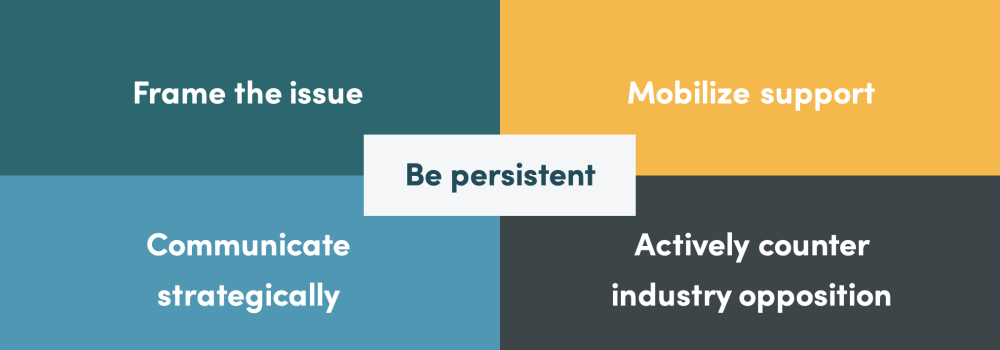
 The world is failing to tackle the non-communicable disease pandemic.
The world is failing to tackle the non-communicable disease pandemic.
2025: A Crucial Year for Scaling Up Health Taxes
by Pete Baker, Katherine Klemperer, William Savedoff and Javier Guzman
October 21, 2024
Recommended
Event
The Time Is Now to Raise Health Taxes
HYBRID
October 22, 2024
3:00—4:00 PM ET | 8:00—10:00 PM BST
Blog Post
Health Taxes Are an Ideal Policy Solution for the Polycrisis Era
Katherine Klemperer et al.
July 17, 2024
POLICY PAPERS
Health Taxes in the Polycrisis Era
and
July 17, 2024
The world is facing a global health crisis. Health systems are struggling to recover post-COVID, economies are stagnating and health budgets are tight, populations are aging, and non-communicable diseases (NCDs) are rising. New challenges like antimicrobial resistance and climate impacts create additional pressures, and wars in an increasingly tense geopolitical landscape are devastating countries and sucking resources away from lifesaving health systems.
What if there was a policy that could both save lives and raise revenue to strengthen health systems and other social sectors? The high-level Task Force on Fiscal Policy for Health, co-chaired by Mike Bloomberg, Mia Amor Mottley, and Larry Summers, of which CGD is secretariat, found that raising health taxes is one such policy. The Task Force found that health taxes could raise $3.7 trillion over the next five years, while saving 50 million lives over the next 50 years, but this will require intelligent use of political strategies by national leaders, supported by multilateral agencies. This blog summarises the key findings of the report.
Please join us on Tuesday, 22 October, as we discuss the report’s findings during the World Bank and IMF Annual Meetings.
The world is failing to tackle the non-communicable disease pandemic
NCDs, such as cancer and heart disease, will account for a staggering 75 percent of all deaths by 2030. This has a high human cost, with over 40 million lives currently lost annually, but it also puts substantial burden on health systems and society as a whole, with the economic cost of the five leading NCDs estimated at $2 trillion a year.
Prevention of NCDs is much better than cure and taxes on tobacco, alcohol, and sugar-sweetened beverages can reduce consumption of these products, which are key drivers of NCDs. As the Lancet Commission on Investing in Health notes, tobacco is the top priority due to its immense health impact: it kills over 8 million people each year. The Task Force found that health taxes could help 10 percent of smokers—over 100 million people—quit.
Yet progress on health taxes has stalled and tax levels are set too low. The result is that the pressure on consumption has stopped. Indeed, 87 percent of the world’s one billion smokers now live in countries where cigarettes are equally or more affordable than in 2019.
Saving lives and raising revenues
The Task Force found that if all countries increased taxes enough to raise prices by 50 percent, consumption would drop enough to avoid 50 million premature deaths over 50 years. Countries around the world have shown this can be done. For example, from 2009 to 2021, raising taxes on tobacco in the Philippines contributed to a 264 percent increase in the cost of a 20-pack of cigarettes, and a 34 percent decline in tobacco use.
In addition to these health benefits, health taxes could raise $2.1 trillion in low- and middle-income countries (LMICs) over the next five years. This could increase LMIC government health budgets by 40 percent, or fill some of the gaps in funding for top priorities in global health—such as the additional $200–328 billion needed per year to implement primary healthcare in 67 key countries, or the additional $13 billion a year needed for highly effective nutrition interventions.
A global coalition to regain momentum on health taxes
Progress on health taxes faces tough resistance from industry, but can be overcome by persistent strategic leadership from government, utilising four key political strategies:
- Intentional framing of the issue, for example as a contribution to healthcare funds using soft earmarking.
- Mobilizing support, including alliances with civil society and health professionals, and partnerships with multilaterals such as the World Bank, IMF, and World Health Organization. Polls show that the public (including heavy consumers) broadly supports their implementation.
- Actively restricting industry influence on policymaking, in accordance with article 5.3 of the Framework Convention on Tobacco Control.
- Communicating strategically with the public, controlling the framing, and exposing industry tactics.Now is the time for health taxes
In autumn of 2025, the United Nations will convene a High-Level Meeting to galvanise global action on NCDs. Turning the tide on the lack of progress on health taxes must be top of the agenda. This makes the next 12 months critical in raising the profile of the issue. A global coalition of strong country leaders, backed by civil society, academia, and multilateral agencies, is needed to take forward the Task Force recommendations, resist industrial pressure, and implement high and sustained health taxes to save lives and raise revenue for social progress.
Disclaimer
CGD blog posts reflect the views of the authors, drawing on prior research and experience in their areas of expertise. CGD is a nonpartisan, independent organization and does not take institutional positions.
Image credit for social media/web: Achira22 / Adobe Stock
Topics
Better Fiscal Policy for Health
https://www.cgdev.org/blog/2025-crucial-year-scaling-health-taxes

Comments